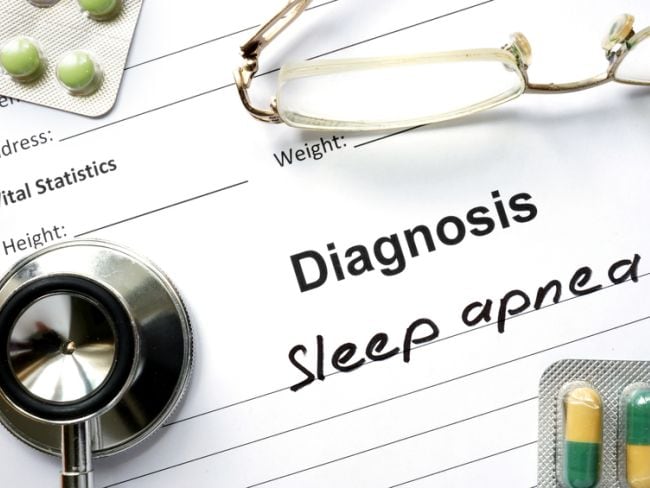In this article, we share factors that put you at risk of sleep apnea and how to overcome these factors.

Conditions like high blood pressure, diabetes, and PCOS are linked to a higher risk of sleep apnea
Sleep apnea is a common but serious sleep disorder in which a person's breathing repeatedly stops and starts during sleep. The most prevalent type, obstructive sleep apnea (OSA), occurs when throat muscles relax and block the airway. This leads to poor sleep quality, loud snoring, daytime fatigue, and can increase the risk of conditions like high blood pressure, heart disease, diabetes, and depression. You may be at risk if you snore loudly, wake up gasping, feel excessively tired during the day, or have a partner who notices pauses in your breathing at night. Identifying your risk factors can help in early detection and prevention. Read on as we share factors that put you at risk of sleep apnea and how to overcome these factors.
10 Factors that put you at risk of sleep apnea & how to reduce them
1. Excess weight
Obesity, especially around the neck, increases fat deposits that can obstruct breathing. Adopt a healthy diet, engage in regular physical activity, and aim for gradual weight loss. Even a small reduction in weight can significantly improve symptoms.
2. Neck circumference
A larger neck (over 17 inches in men and 16 inches in women) can narrow the airway. Strengthen and tone neck and throat muscles through targeted exercises and manage overall body fat to reduce neck size.
3. A Narrowed airway
Inherited traits like a narrow throat, enlarged tonsils, or adenoids can block airflow. ENT evaluation may help; in some cases, surgery or use of devices like CPAP (Continuous Positive Airway Pressure) may be recommended.
4. Being male
Men are more likely to develop sleep apnea than women. While gender can't be changed, men should be more vigilant about symptoms and seek early testing and treatment.
5. Older age
Sleep apnea is more common as people age, due to muscle tone loss in the throat. While age can't be altered, good sleep hygiene and lifestyle changes can minimise the severity of symptoms.
6. Family history
Genetics can play a role in your risk of developing sleep apnea.
Reduce risk: Stay informed about your family medical history and monitor symptoms closely for early diagnosis.
7. Use of alcohol or sedatives
These substances relax throat muscles, increasing the risk of airway obstruction. Limit or avoid alcohol and sedative medications, especially before bedtime.
8. Smoking
Smokers have higher rates of sleep apnea due to increased inflammation and fluid retention in the airway. Quitting smoking can significantly improve breathing during sleep and enhance overall respiratory health.
9. Nasal congestion
Difficulty breathing through the nose due to allergies or structural issues can increase risk.
Reduce risk: Use nasal sprays, allergy treatments, or consider surgery if chronic congestion is an issue.
10. Medical conditions
Conditions like high blood pressure, diabetes, and PCOS are linked to a higher risk of sleep apnea. Manage chronic conditions effectively through medication, diet, and regular check-ups to prevent sleep apnea from worsening.
By identifying these risk factors and making conscious lifestyle changes, you can significantly reduce your likelihood of developing sleep apnea or manage its impact more effectively. If symptoms persist, it's important to consult a sleep specialist for accurate diagnosis and treatment options.
Disclaimer: This content including advice provides generic information only. It is in no way a substitute for a qualified medical opinion. Always consult a specialist or your own doctor for more information. NDTV does not claim responsibility for this information.
DoctorNDTV is the one stop site for all your health needs providing the most credible health information, health news and tips with expert advice on healthy living, diet plans, informative videos etc. You can get the most relevant and accurate info you need about health problems like diabetes, cancer, pregnancy, HIV and AIDS, weight loss and many other lifestyle diseases. We have a panel of over 350 experts who help us develop content by giving their valuable inputs and bringing to us the latest in the world of healthcare.














